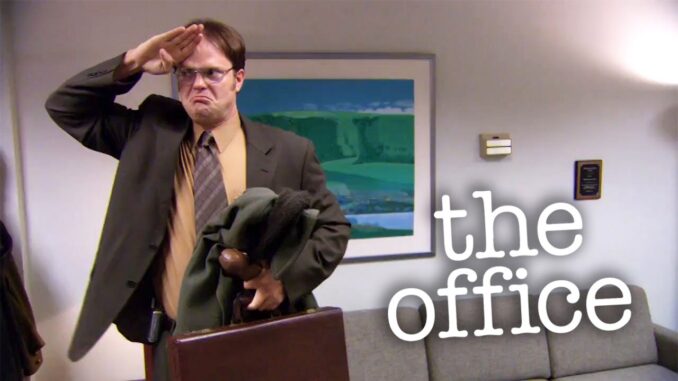
The Ascendancy of Mose: When Dwight Moves Up and The World Gets a Little Weirder
Dwight Schrute's ambition was as relentless as his beet-stained fingers drumming a rhythm on his desk. For years, he toiled at Dunder Mifflin Scranton, yearning for the day he could shed the skin of "Assistant Regional Manager" (to the Regional Manager) and finally, truly, manage. When that day inevitably arrived, it was never quite as glorious, as impactful, or as sane as Dwight had imagined. "When Dwight Moves Up" episodes of The Office U.S. aren't just about a promotion; they're about the hilarious and unsettling consequences of unrestrained power, the fragile order of a workplace ecosystem, and the enduring strangeness of the Schrute family.
The first taste of Dwight's ambition realized came with his brief stint as Regional Manager after Michael Scott's departure. It was a reign of terror and, in a strangely endearing way, efficiency. He immediately implemented his own brand of "Schrute Rules," enforcing strict adherence to time management, safety protocols that bordered on torture, and a deeply ingrained loyalty to himself. He fired people, hired people, and even fired the people he hired. This wasn't just management; it was a personality transplant performed on the entire office, leaving it quivering and confused.
The humor, of course, stemmed from the absurdity of it all. Dwight, a man whose fashion sense peaked in the 1970s and whose knowledge base consisted mostly of survivalist manuals and beet farming techniques, was now in charge. He implemented mandatory drills for everything from active shooter situations to paper jams, transforming the mundane office environment into a bizarre training ground for a dystopian future. Yet, amidst the chaos, there was a strange dedication. Dwight genuinely believed he was making the office a better, stronger, and more productive place, even if his methods were closer to those of a zealous dictator than a compassionate leader.
But perhaps the most fascinating element of Dwight's ascensions, big or small, was the introduction of the wider Schrute family into the Dunder Mifflin ecosystem. Each promotion, each opportunity to exert influence, seemed to open the floodgates for his equally eccentric relatives. Mose, in particular, became a recurring symbol of Dwight's unique brand of crazy. Whether silently tending to the beet fields or startling unsuspecting employees by appearing from behind stacks of paper, Mose served as a constant reminder that Dwight's world was not limited to the beige walls of the office.
Mose's presence highlighted the stark contrast between the relatively "normal" world of Dunder Mifflin and the deeply rooted agricultural and, frankly, bizarre traditions of the Schrute family farm. Dwight's attempts to integrate these two worlds often resulted in hilarious and unsettling clashes. He might subject his employees to a Pennsylvania Dutch barn raising as a team-building exercise, or introduce the farm's scarecrow as a motivational speaker. These moments served to underscore the fact that Dwight's leadership wasn't just about management; it was about imprinting his entire worldview onto the office, a worldview that was often rooted in the soil and seasoned with a healthy dose of the inexplicable.
Ultimately, the "When Dwight Moves Up" episodes are a testament to the complex character that he is. He is simultaneously ridiculous and admirable, infuriating and oddly endearing. He desires power, not for personal gain, but to impose his own unique order on the world. His methods are often misguided, his judgment questionable, and his connection to reality tenuous at best. Yet, he possesses a fierce loyalty, an unwavering work ethic, and a deep, if often misguided, belief in the importance of his work.
These moments also serve as a commentary on the nature of leadership. Dwight's failures as a manager stem from his inability to understand and empathize with those under his command. He views them not as individuals, but as cogs in his grand machine, to be manipulated and controlled to achieve his desired outcome. This approach, while occasionally effective in the short term, ultimately leads to resentment and rebellion.
In conclusion, when Dwight Schrute moves up in The Office, the world gets a little weirder, a little more unsettling, and undeniably funnier. It's a chance to witness the unrestrained power of a man whose vision of leadership is as unique and eccentric as his collection of bear repellents. It's a reminder that even in the most mundane of environments, there's always room for the absurd, the unexpected, and the strangely compelling influence of the Schrute family farm. And, perhaps most importantly, it's a demonstration that true leadership requires more than just ambition; it requires empathy, understanding, and a willingness to embrace the humanity of those you lead, even if they don't know the difference between a brown bear and a black bear.